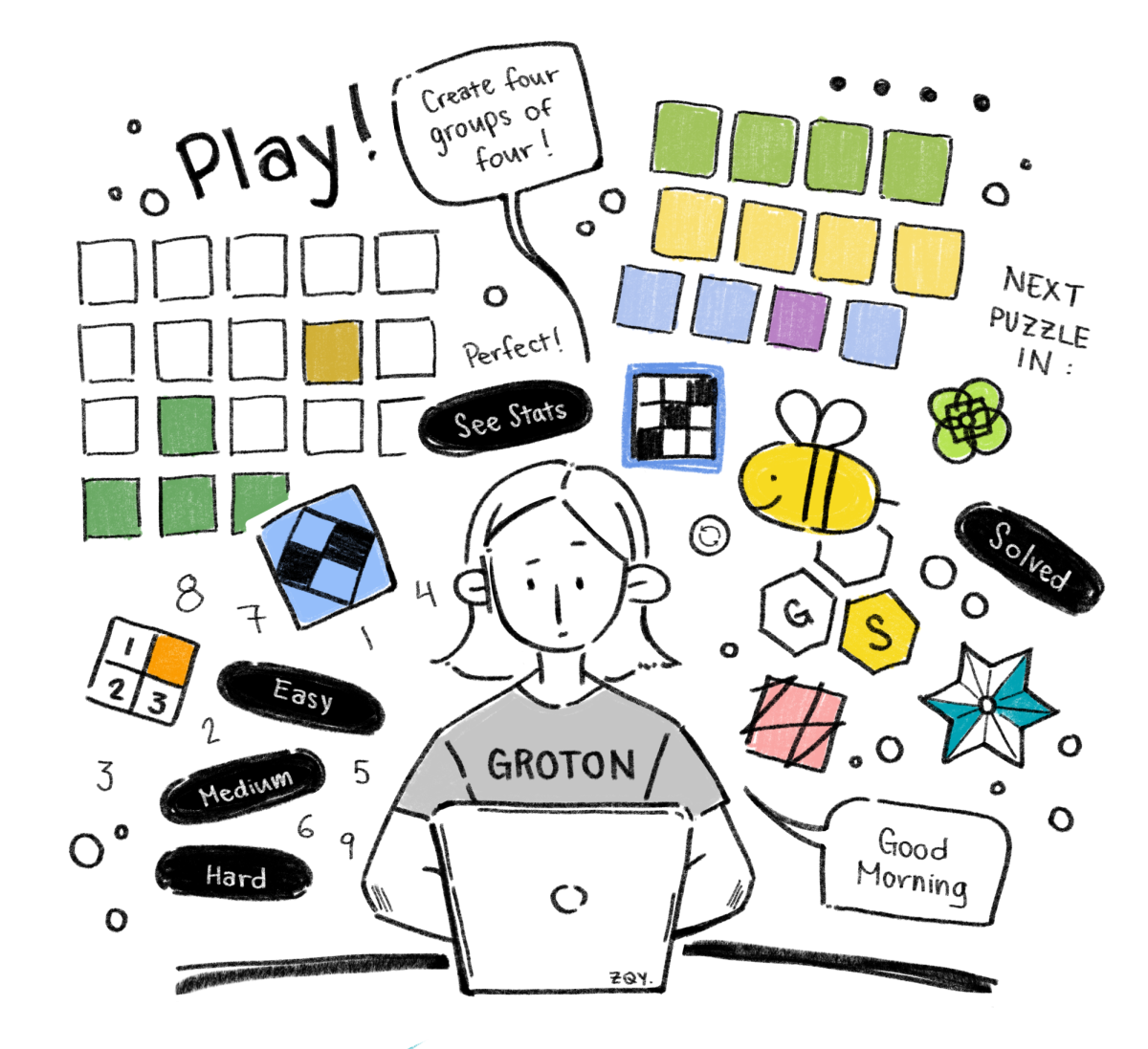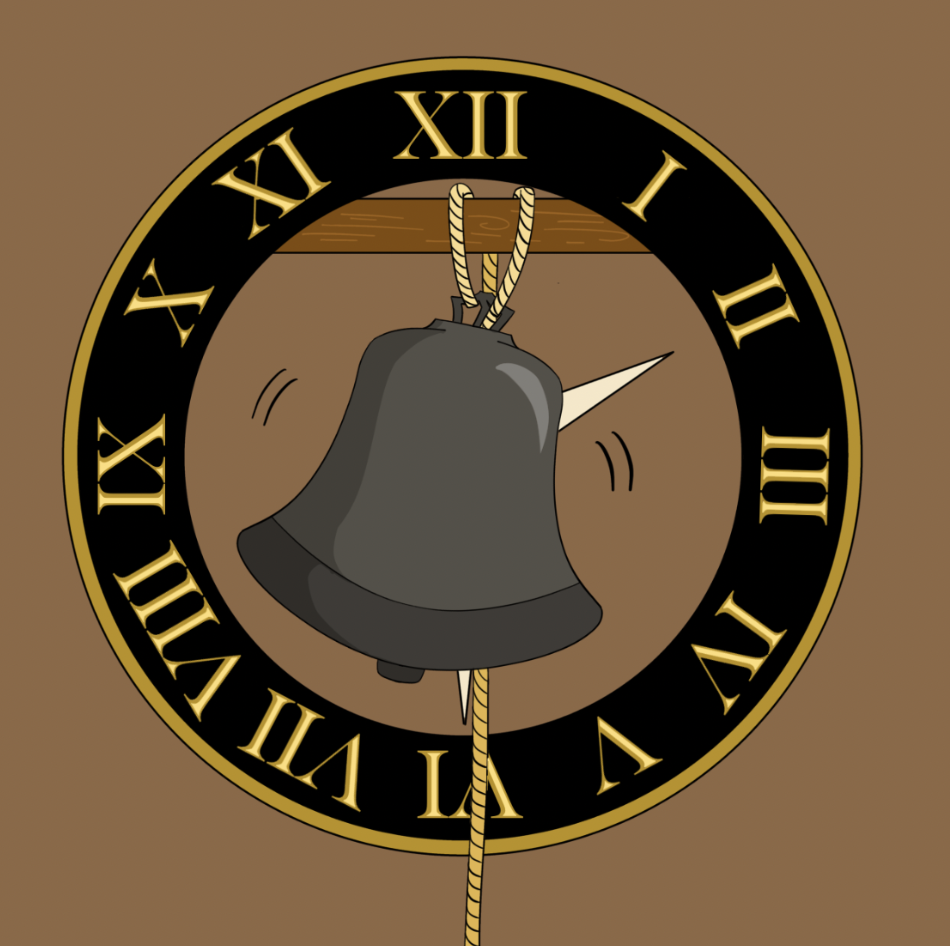Like the average Groton student, my days are filled with engaging class discussions, rigorous projects, and informative presentations. Of course, during some of this class time I will be asked to take notes, prompting me to open my backpack and take out my computer . . . only to find the New York Times website already opened to the Games tab. As I stare at the empty Wordle, willing myself to close the tab and begin typing my notes, the person next to me leans over and whispers, “I got it in three today.” Fueled by a competitive spirit, roughly the next fifteen minutes of class time are then lost to the Wordle, Connections, The Mini crossword, and, occasionally, Sudoku, Spelling Bee, and Strands.
This passion for NYT games is not uncommon among Groton students, as almost every one of the ten students I approached shared that they play frequently, with many even revealing that the games are a regular part of their daily routine. Around 70 percent of the students I interviewed prefer to play during class, and only 30 percent prefer to play in the mornings or right before bed.
Based on these interviews, the most frequently played game on campus is the Wordle, though students vary in their approaches to discerning the daily five letter word. Some students—including Kritika Aryal ’24 and Dani Shyjan ’25—choose a new starting word every day. Others, including myself, put our trust in the same carefully picked word each time we begin. Students’ starting words ranged from ALOES to DRAIN to TASER to PLATE, with Margaret Kaneb ’25 personally favoring HAPPY despite the repeating letter. Although unorthodox, Margaret stands by her strategy, despite admitting that she has “never gotten the Wordle by [herself].”
While these games can be “silly and potential time-wasters,” Jasmine Powell ’24 explained her reasons for playing succinctly: “1, it’s fun and 2, it’s a nice challenge. I feel smart when I do the Connections without making any mistakes.” Both the brief time requirement and the mental exercise appeal to Groton students, who prefer to distract themselves with something that feels “productive.” The competitive appeal of the games varies greatly from student to student, with some never sharing their scores, and others challenging their friends or family members daily. Jasmine explained that she typically did not share her scores unless they were particularly impressive, such as “getting the purple connections [the hardest tier] first,” in which case she would send her results to her sister.
Although competition was discussed by some, students focused more on the ways NYT games fostered moments of community. In the library or the forum, or even (regrettably) in the back of classrooms, students can be found huddled around computers strategizing over what letters have gone unused in the Wordle, or whether “dip” and “scram” can be grouped as synonyms for leaving in the Connections. Students regularly share hints or offer up forgotten words in the Spelling Bee to bump a friend up to “genius” status. A few students explained that they exclusively play with others, enjoying the social connection far more than the substance of the games.
The Groton community, although divided on favorites and strategies, appears relatively uniform in their support of NYT games both as a fun outlet and a chance for human connection. Support for the April Circle Voice’s “Groton Connections” was strong within the student body, with Margaret Kaneb ’25 calling the game a “creative and entertaining addition,” suggesting a potentially larger call for more personalized Groton games within the typical Circle Voice publication. Ultimately, it is certain that the impact of NYT Games on Groton students is worth far more than the ten minutes of distraction.








